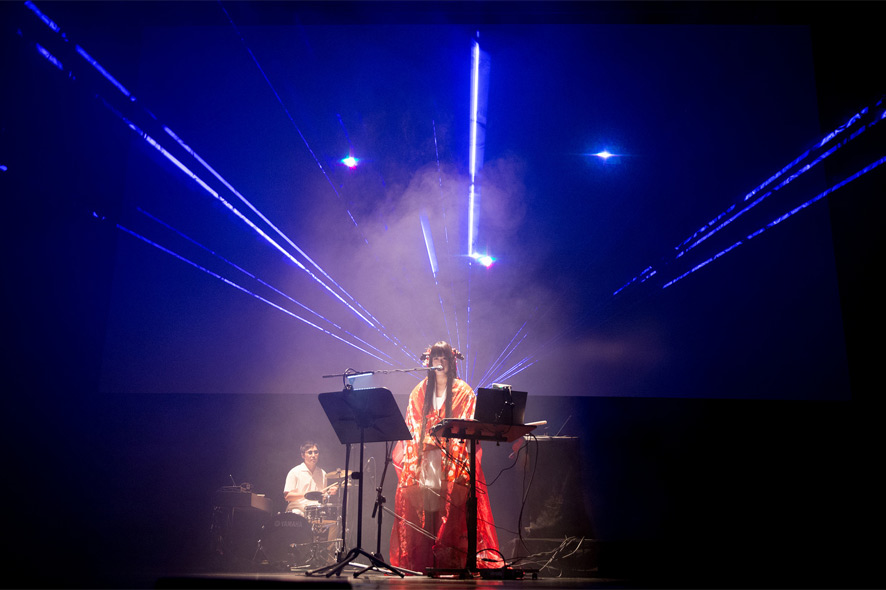
Her idea for a way to make music live on beyond humankind’s eventual extinction and to use DNA as the medium to transport this information for eternity garnered Japanese musician Etsuko Yakushimaru the 2017 STARTS Prize. In this interview, she explains her concept of “post-humanity music” and gives her take on mutations that randomly occur when genetic information is passed on from generation to generation.
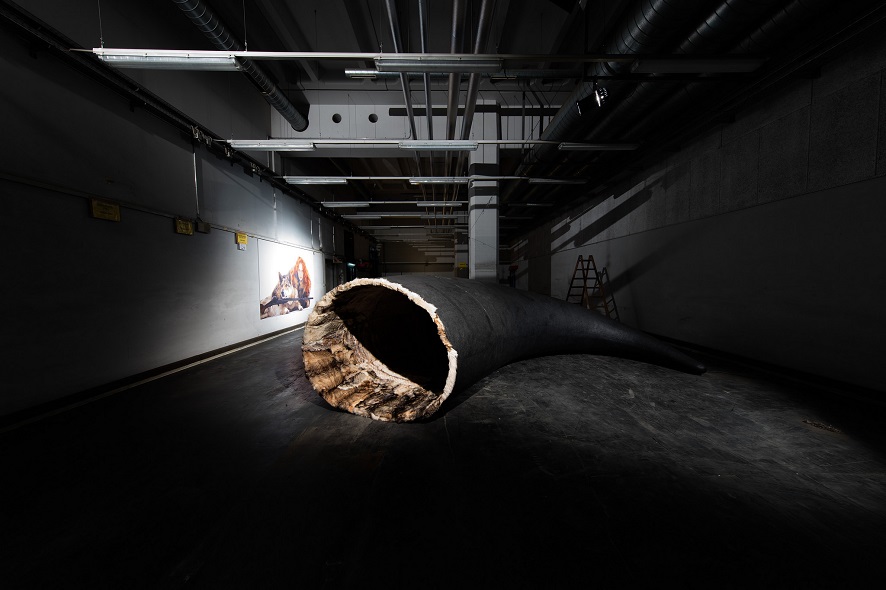
“K-9_topology,” a series of works by Slovenian artist Maja Smrekar, won last year’s Golden Nica in the Prix Ars Electronica’s Hybrid Arts category. In this interview, Maja Smrekar explains what’s behind these four projects, how dogs and wolves characterize her work, and which ethical questions she investigates.
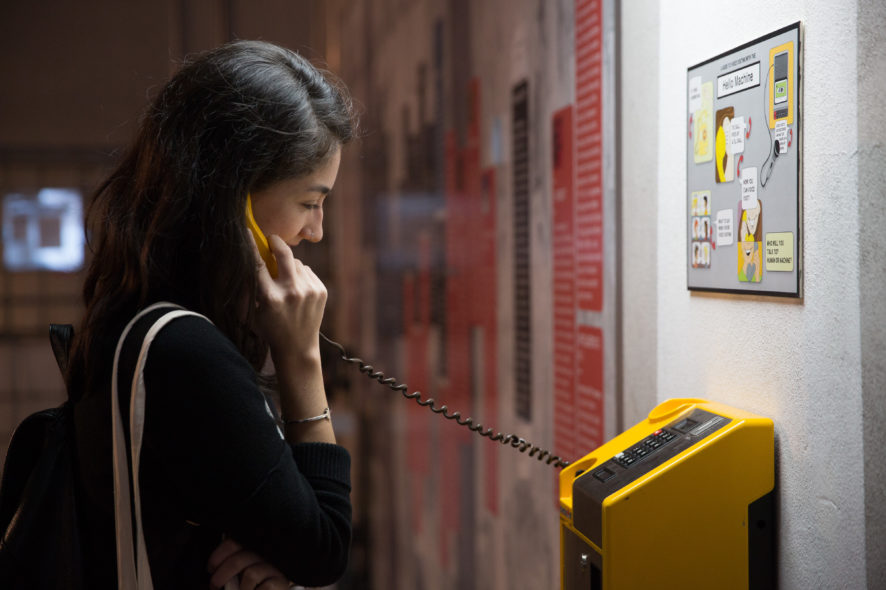
The "Hello Machine" is an installation connecting the Ars Electronica Festival Linz, Science Gallery Dublin and Volkswagen Berlins Drive Exhibition, has been developed with the assistance of the Ars Electronica FutureLab, by way of vintage or obsolete pay phones from Hanlon’s collection. The Hello Machine’s ‘Hello Machine - Hello Human’ feature touches on the playful moments that are shared between man and machine.
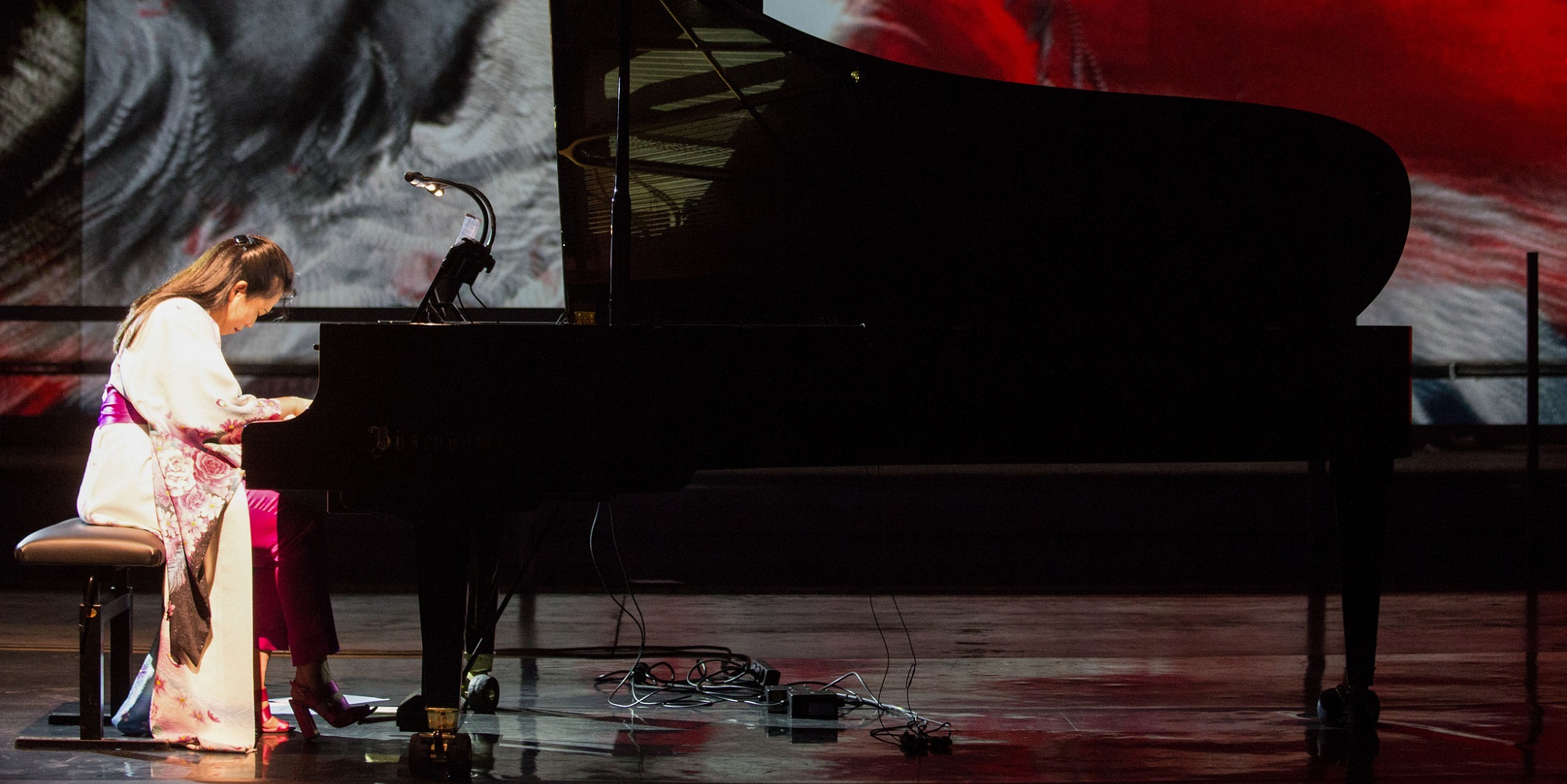
Sad but true—the fifth and final day of the 2017 Ars Electronica Festival has come to a close. Amazing how time flies when you’re having fun at so many absorbing events! We sincerely hope you checked off everything on your to-do list. Here’s a brief retrospective look at Day 5.
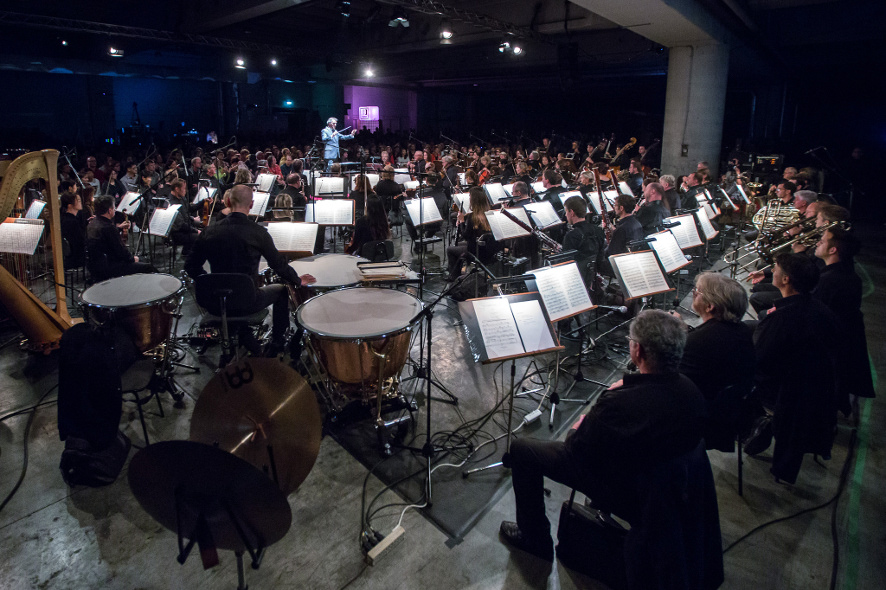
The 2017 Ars Electronica Festival is already four days old. And Sunday as well lived up to high expectations with a great lineup of conferences, workshops, media art, performances and much more. The most noteworthy event was undoubtedly Markus Poschner’s premiere as chief conductor of Linz’s Bruckner Orchester. But let’s take this one step at a time! So here we go on a lavishly illustrated summary of Day 4.
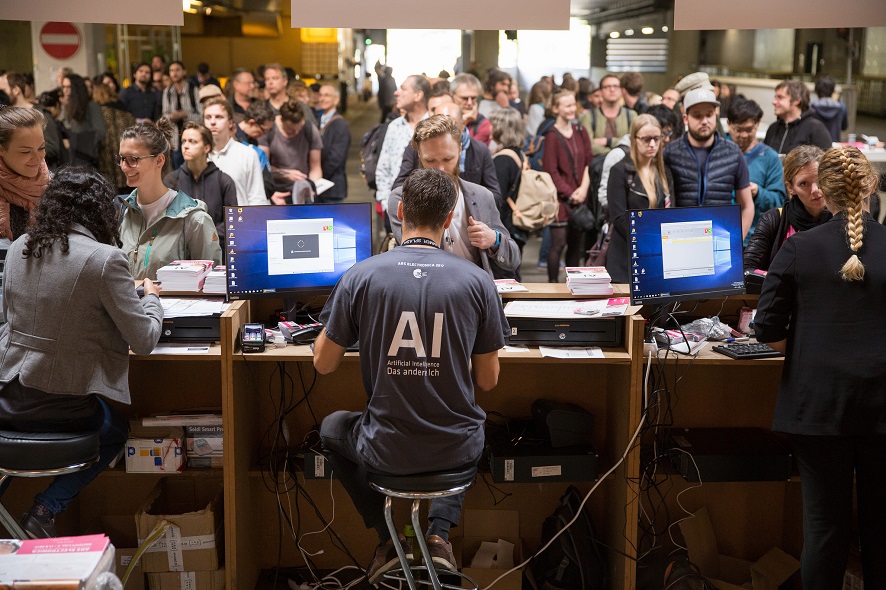
Our festival Saturday made an exciting start into the weekend: With the Helper's Conference, the final hours of the Hackathon, an organic farmer's market, the Expanded Animations Symposium, the Prix and STARTS Forums, and of course countless exhibitions full of state-of-the-art media art, the festival was once again filled to the brim with wonderful events. Let's have a look!
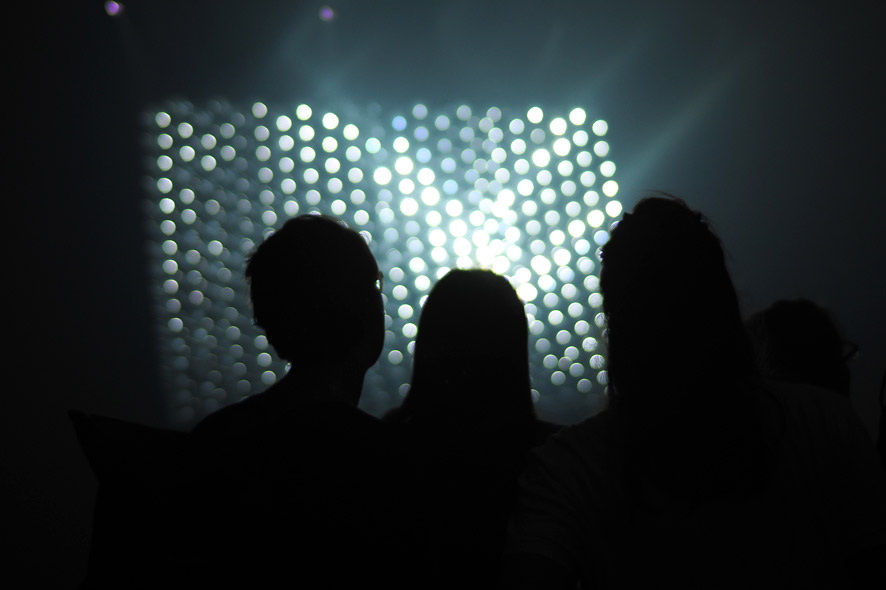
Thinking together, celebrating together. From conferences to ceremonies, from exhibitions to workshops, from VR glasses to brain-computer interfaces. Another inspiring impressions from the 2nd festival day.
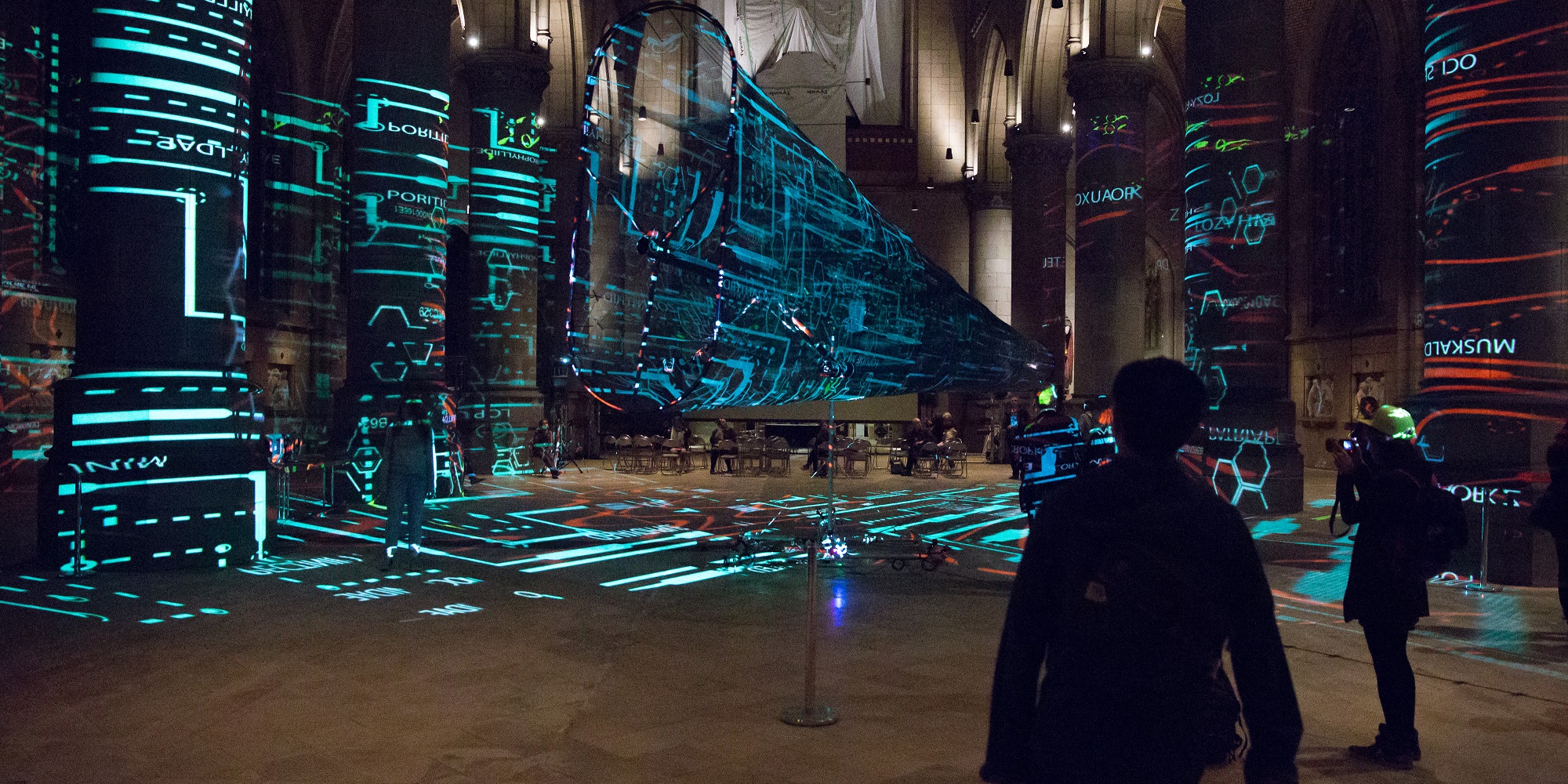
The big day has finally arrived—this year’s Ars Electronica Festival is underway! The preparations had been going full speed ahead for months now to once again make this huge celebration of media art something absolutely extraordinary. And that’s exactly what has come to pass! Here, for your viewing pleasure, are a few impressions of the first day of the festival.
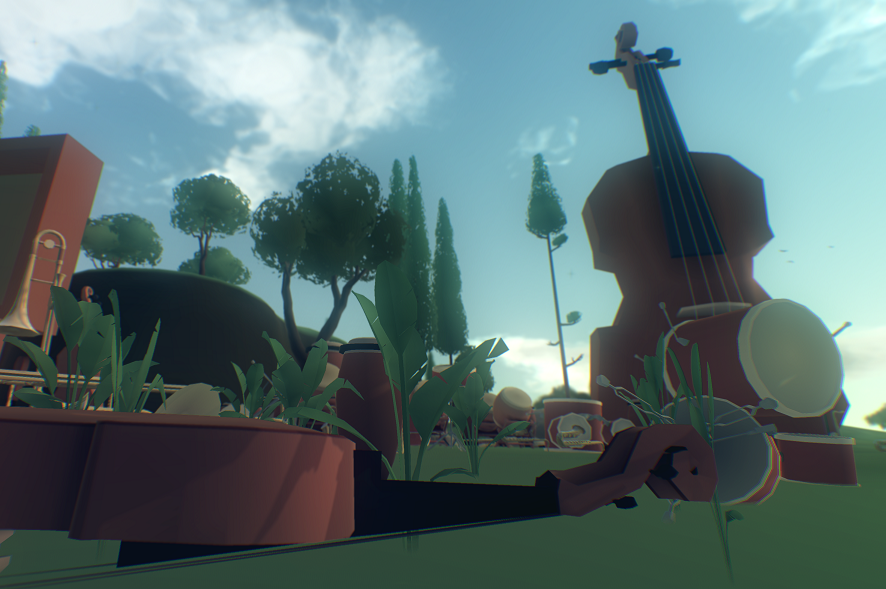
This year’s Golden Nica in the Computer Animation/Film/VFX category goes to David OReilly for “Everything,” his game that literally lets you play with everything—from the tiniest atom to the biggest galaxy. In this interview, the artist and game developer tells more about his work.
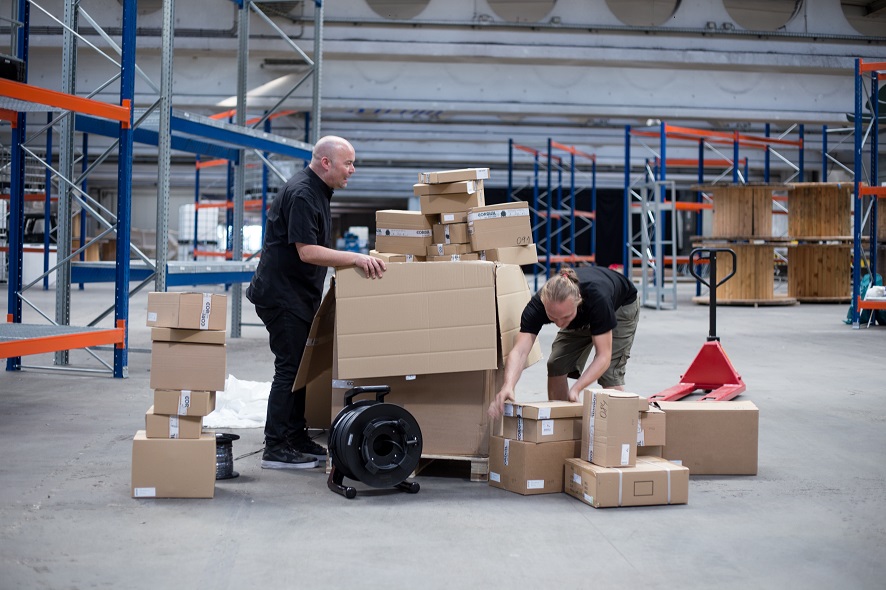
The Ars Electronica Festival annually transforms the mini-metropolis Linz into the global hotspot of media art that attracts tens of thousands of visitors. Karl Schmidinger, technical director of the Ars Electronica Festival, tells us in this interview how he and his crew make it possible for this big show to go on!
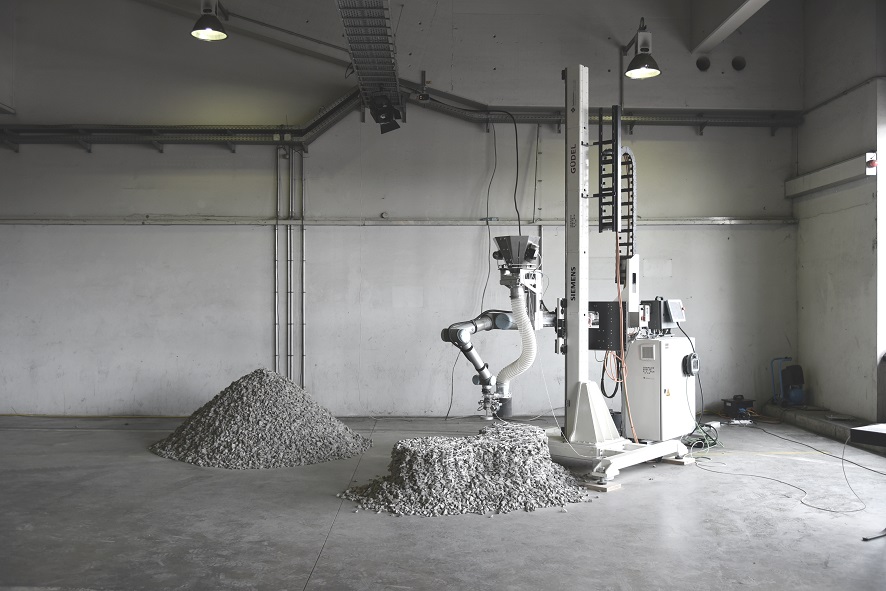
The idea seems so simple—Rock Print, a STARTS Prize honoree, demonstrates how to build a large structure out of only gravel and wire. But behind the seeming simplicity is the difficulty of implementing the concept in real life. In this interview, Matthias Kohler and Fabio Gramazio of ETH–Swiss Federal Institute of Technology in Zürich tell why the joint project with the Self-Assembly Lab at MIT was such a surprise to both the construction industry and the STARTS Prize jury.
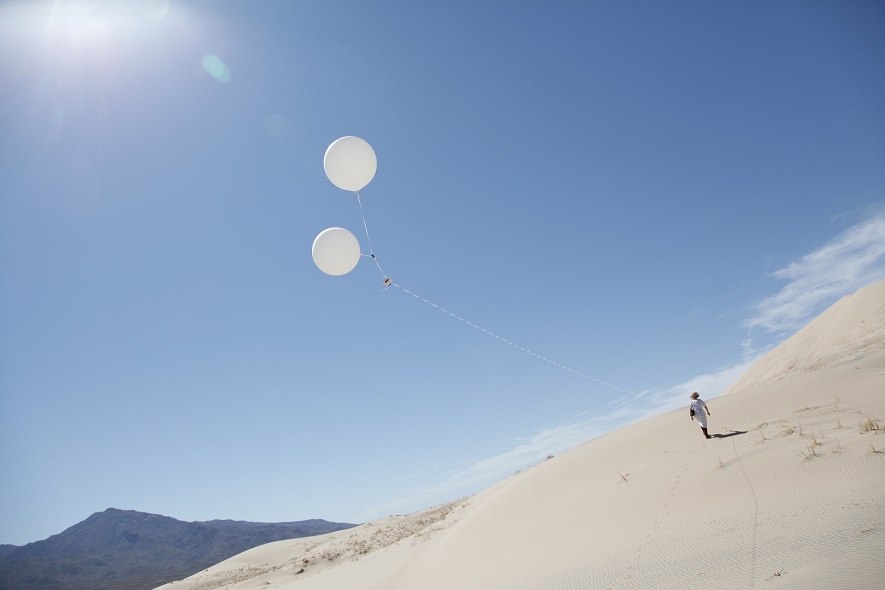
The Campus exhibition that Linz Art University has hosted during the Ars Electronica Festival since 2002 extends an invitation to an art college from a foreign country to come to Linz and showcase the work being done there. This year’s guest is the University of California at Los Angeles. In this interview, Professor Victoria Vesna gives us a preview of UCLA’s exhibition, FEMINIST CLIMATE CHANGE: Beyond the Binary.
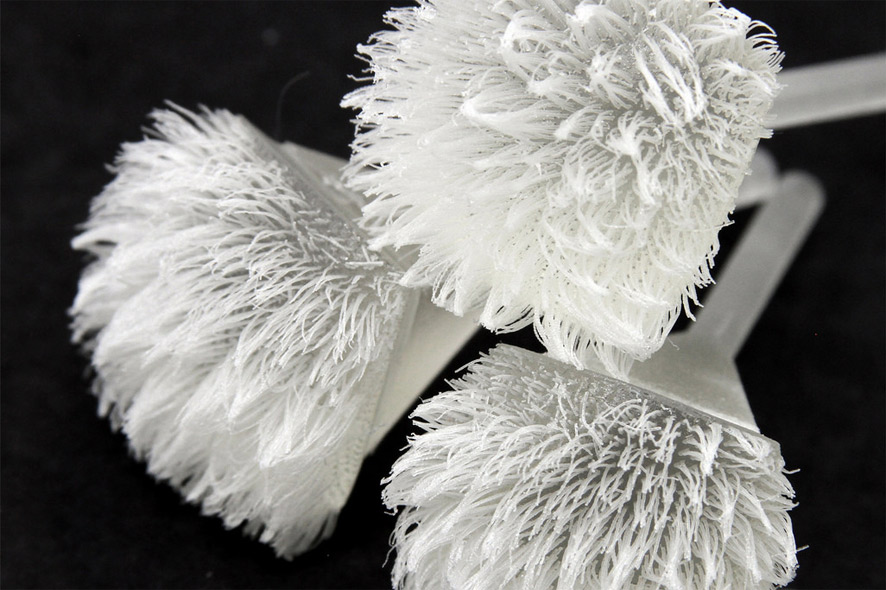
A fresh update from the Tangible Media Group, an interdisciplinary research facility at MIT Media Lab in Cambridge MA, USA, is the latest attraction of the RADICAL ATOMS exhibition in the Ars Electronica Center. These three programmable materials are presented in this interview with Prof. Hiroshi Ishii, the director and founder of the lab.
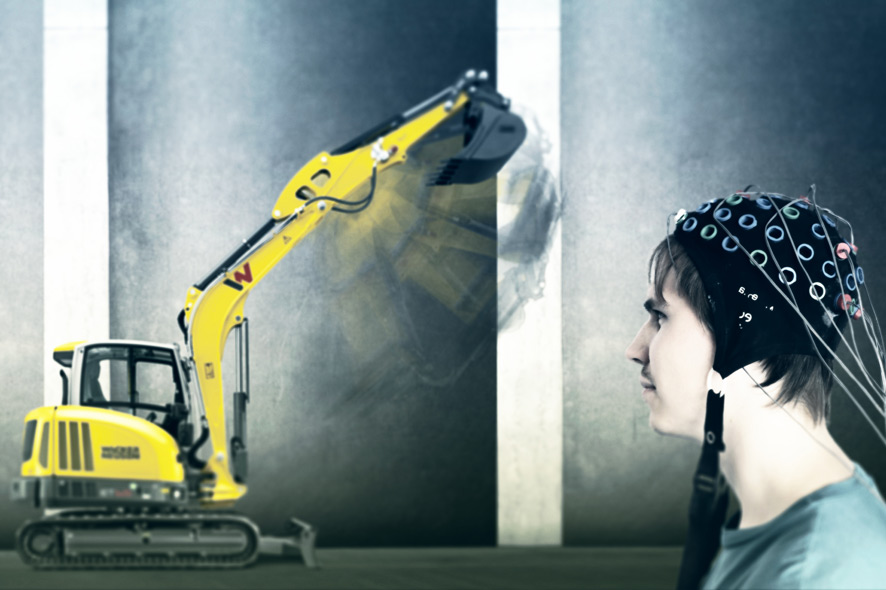
Visitors of this year's Ars Electronica Festival will be able to actually take command of an earthmover with their eye movements and mental powers. Read what it takes to participate and how this mind-melting experiment came into existence.
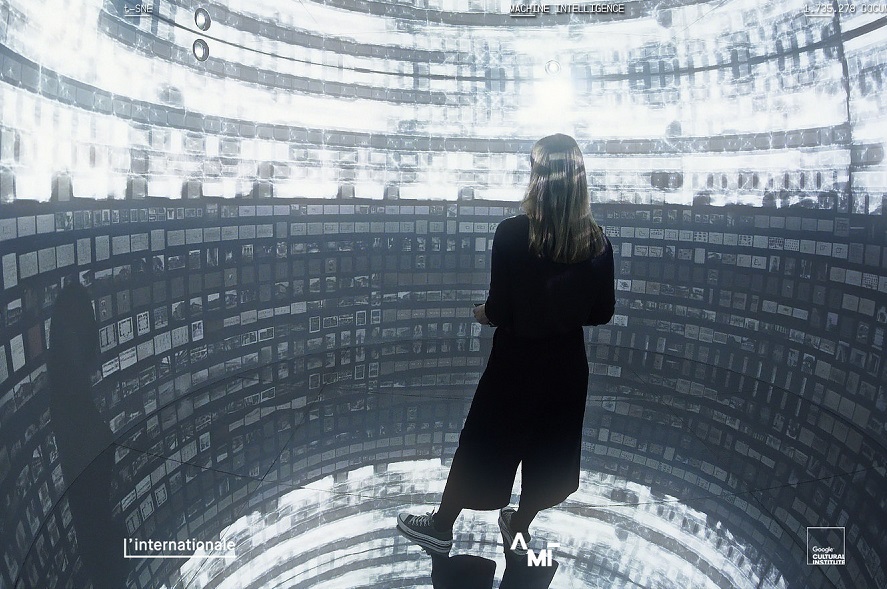
A monk who’s also an expert in artificial intelligence is one of the speakers at the 2017 Ars Electronica Festival’s Opening Symposium as well as the artificial intelligence Theme Conference. Zenbo Hidaka will discuss the latest technologies, artificially intelligent machines, and spirituality on September 7th and 8th. Here, he provides some initial insights into his field of expertise.
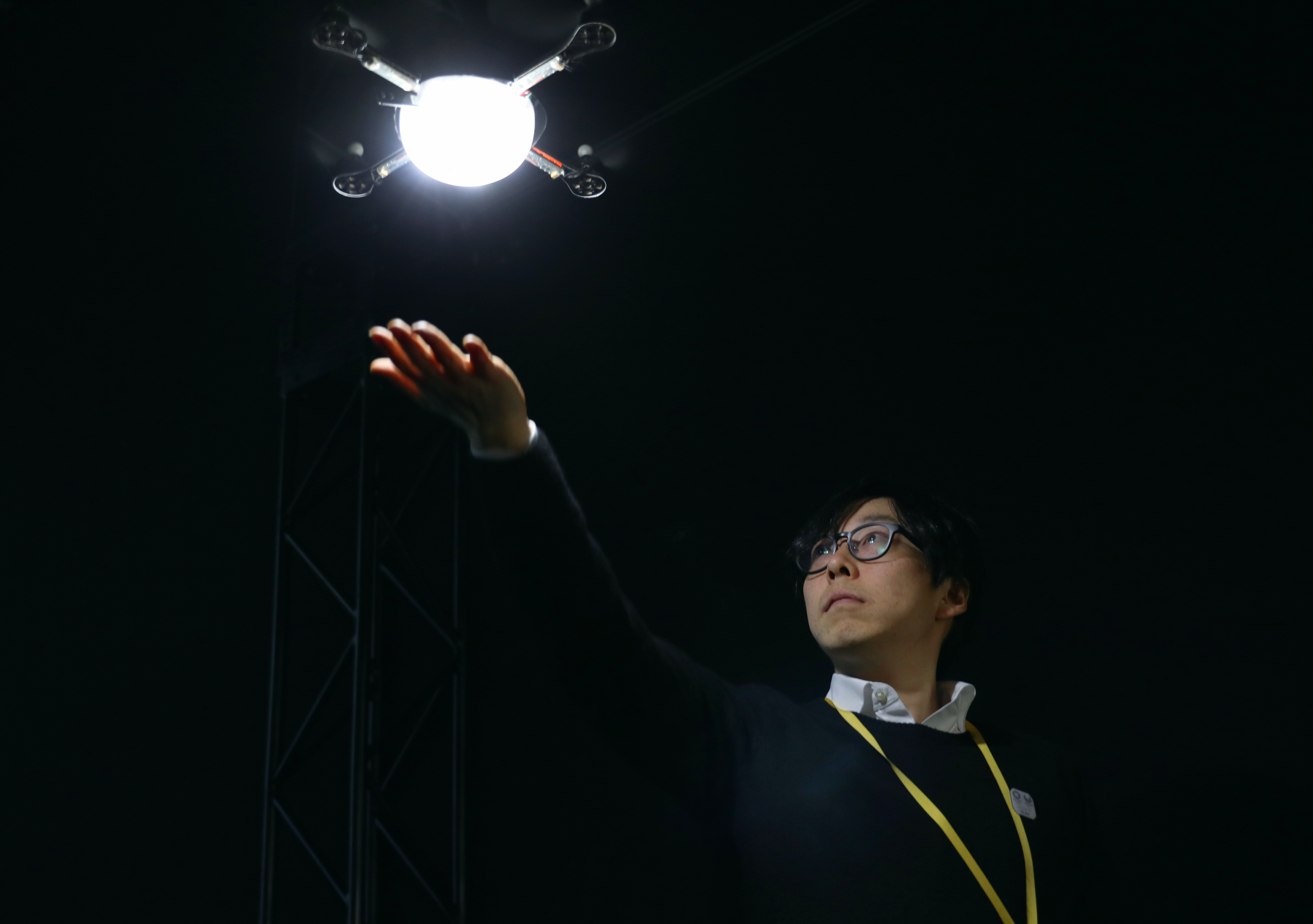
How to deal with networks of intelligent, autonomous robots raises many questions that the Spaxels Research Initiative aims to formulate and pose.
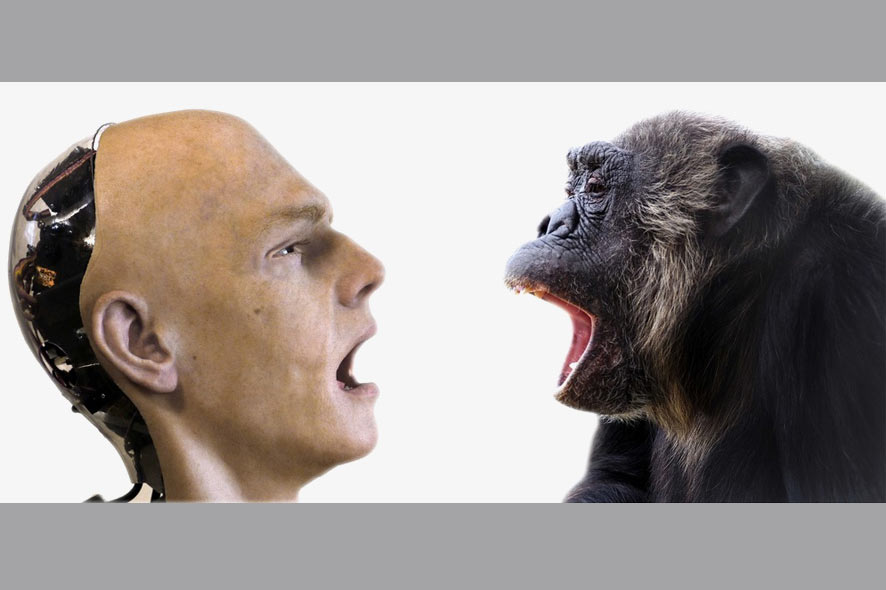
Artificial intelligence is the theme of this year’s Ars Electronica. The 2017 media art festival’s encapsulating motif is provided by the “Beyond Humans” research project. The respective roles played by the android and the chimp depicted in this image were elaborated on by the project’s scholarly director, Ramiro Joly-Mascheroni.
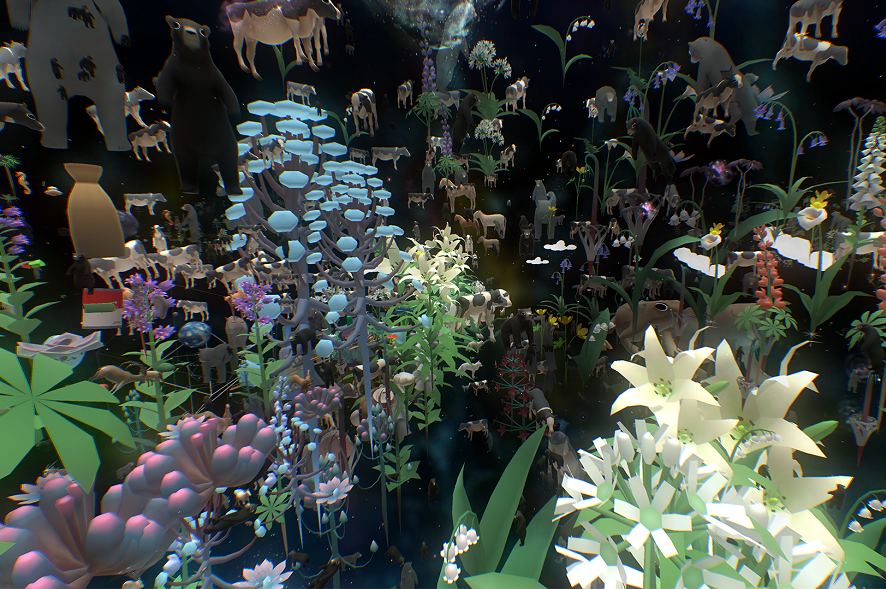
The CyberArts exhibition running during the Ars Electronica Festival September 7-11, 2017 once again showcases this year’s Prix Ars Electronica prizewinners. In this interview, the exhibition staff tells us about the show and the accompanying program of events including OK Night.
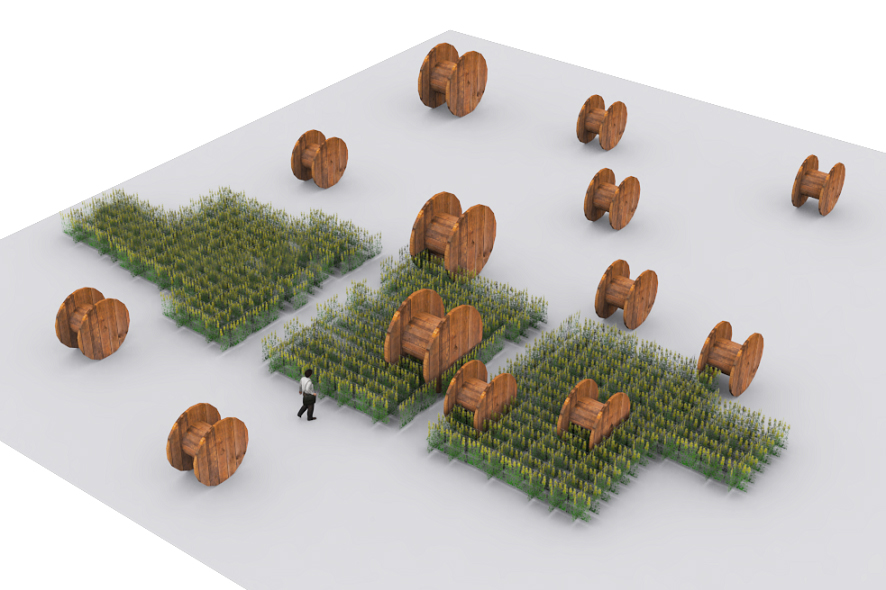
Configuring the 80,000-square-meter interior of POSTCITY Linz with lucid structures conducive to exhibiting media art is no easy task. But the architects at ANY:TIME took up this challenge and are working out a suitable framework for the artwork at the 2017 Ars Electronica Festival. Here, they discuss their approach.
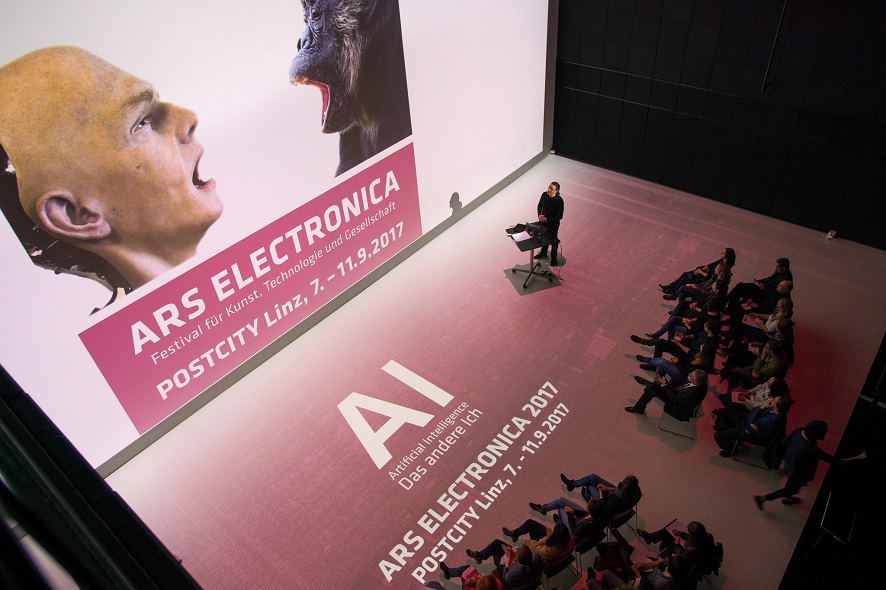
One thing the 2017 Ars Electronica Festival definitely won’t be is boring! Lots of fascinating new features await festivalgoers September 7-11. Ars Electronica Artistic Director Gerfried Stocker told us about what’s new on this year’s lineup.
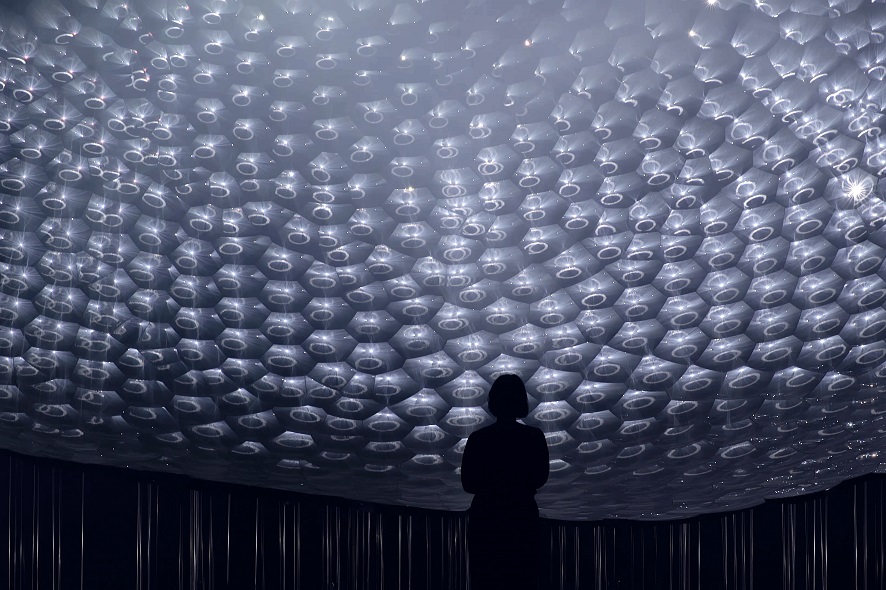
Screenings, symposia and hands-on adventure with virtual reality installations—there’s a lot doing at this year’s Ars Electronica Animation Festival September 7-11, 2017. We met up with the production team to find out more about the program, the participating artists and their works.
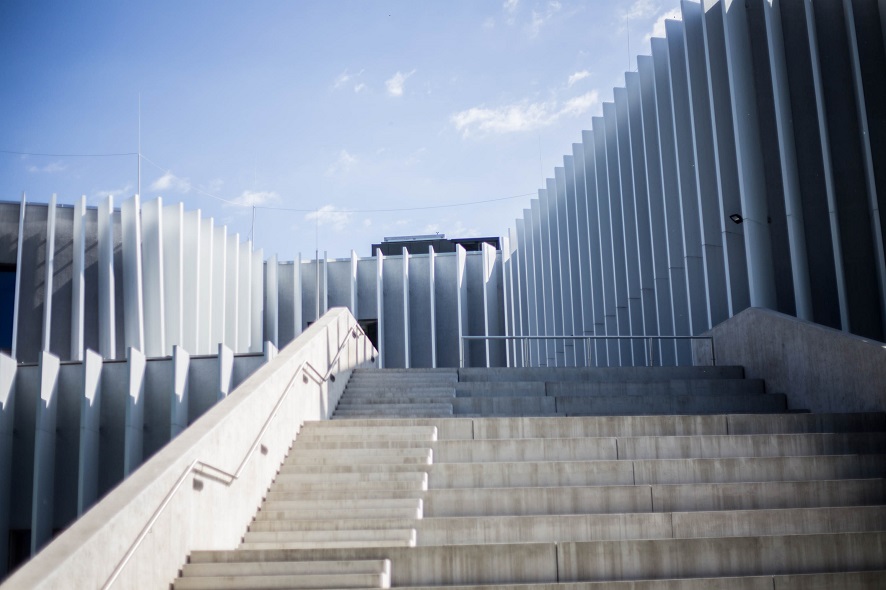
With Sonic Saturday on September 9th and Music Monday on September 11th, the 2017 Ars Electronica Festival now features two days dedicated to sound art. What can we look forward to this year? We found out!
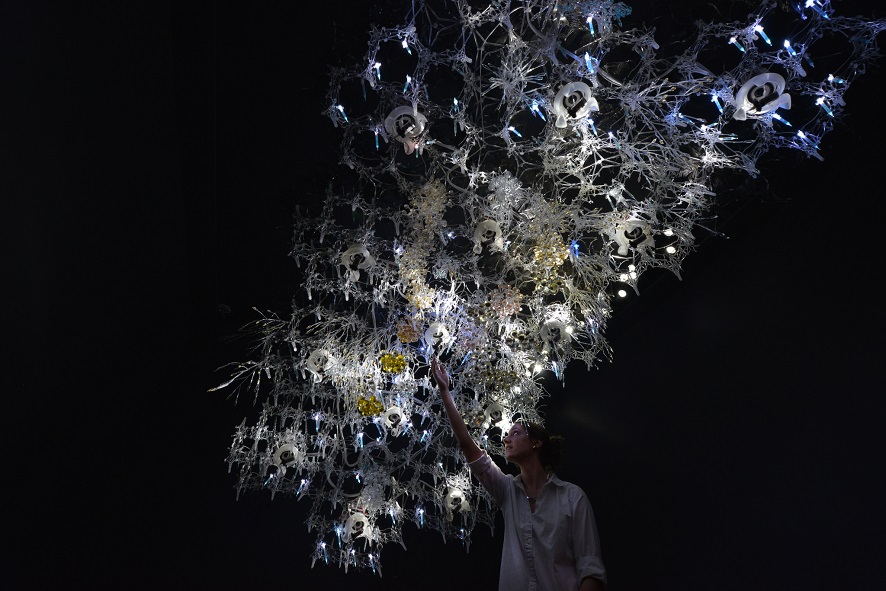
Taking advantage of this continent’s diversity—that’s what Ars Electronica has been doing in a broad spectrum of collaborative projects clear across Europe. In this interview, Festival Director Martin Honzik and Producer Veronika Liebl told us about them and what role they’ll play at the Ars Electronica Festival September 7-11, 2017.
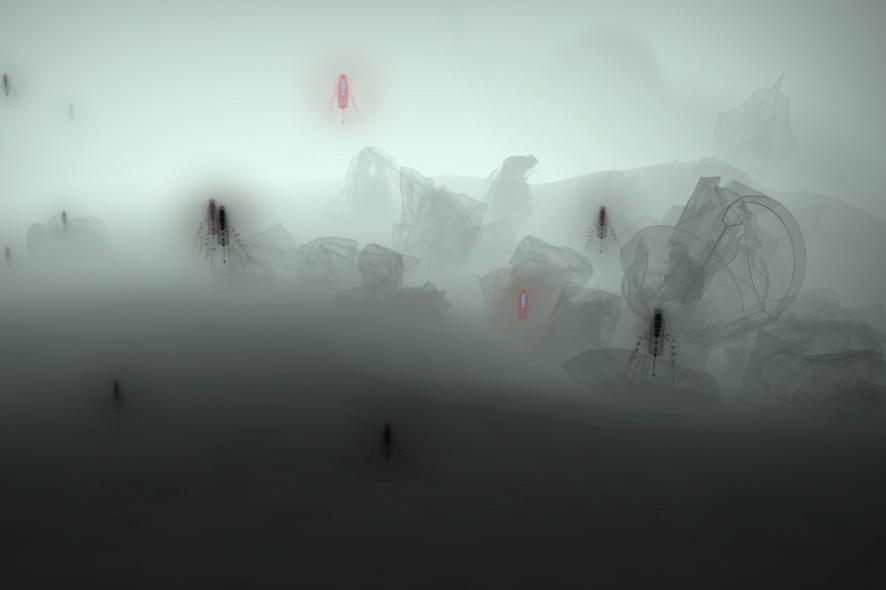
The FEAT Project staged seven nine-month residencies in which artists worked together with scientists at the interface of art and technology. At the FEAT interview panel on Saturday, September 9, 2017 at the Ars Electronica Festival, panelists will discuss why this collaboration can occasionally be difficult but is rewarding nevertheless.
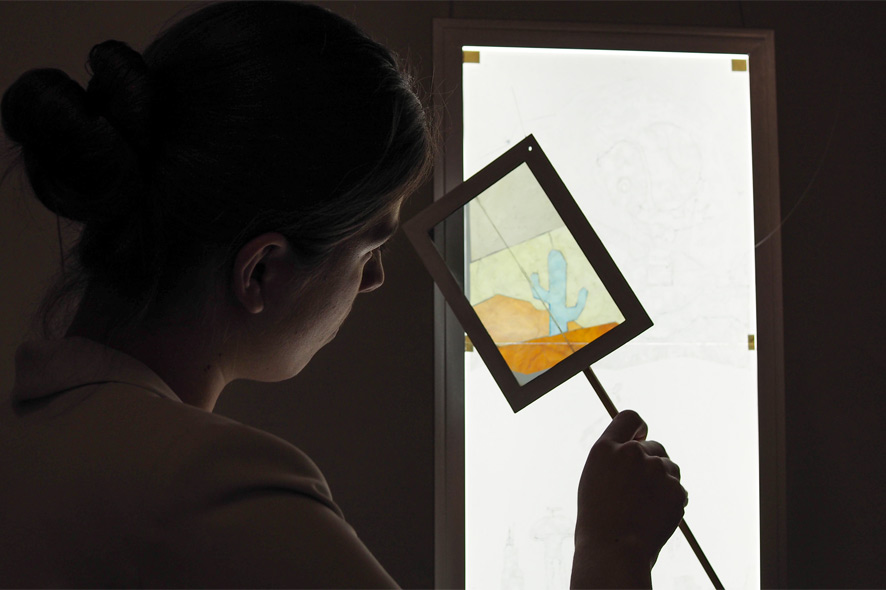
Lisa Buttinger displayed meticulous attention to the most minute details as she went about completing her graduation project at Linz’s High School for Artistic Design. In this interview, she talks about what she calls nonvisual art, an innovative artistic medium that has garnered her twofold honors—the Golden Nica in the 2017 Prix Ars Electronica’s u19 – CREATE YOUR WORLD category and an Honorary Mention from the 2017 STARTS Prize.
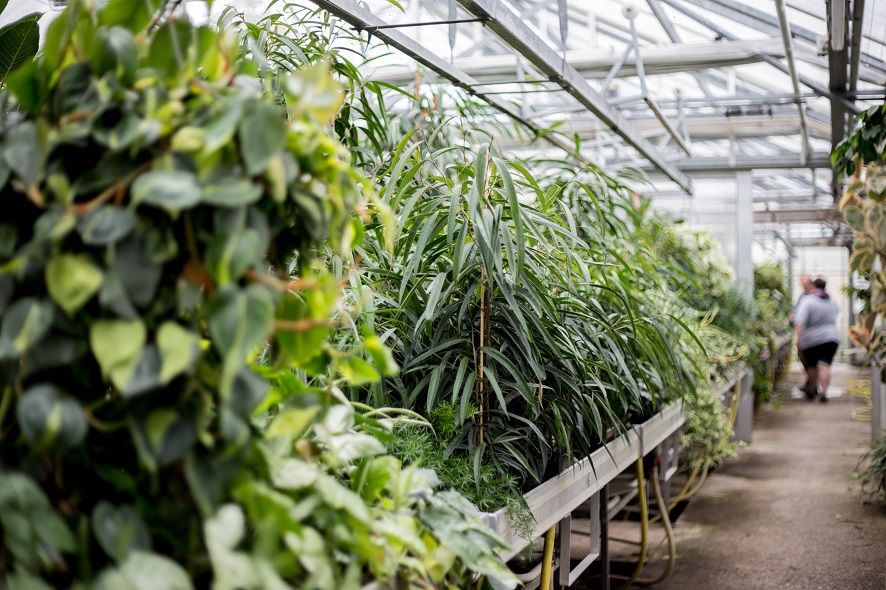
POSTCITY Linz, the festival location, has been vacant for several years now. The gray halls seem deserted, cheerless. Linz’s municipal gardeners have been assigned the job of giving a friendly makeover to this interior in time for the Ars Electronica Festival September 7-11. The upbeat greenery got off to an auspicious start in mid-summer, and we were on hand to capture it.
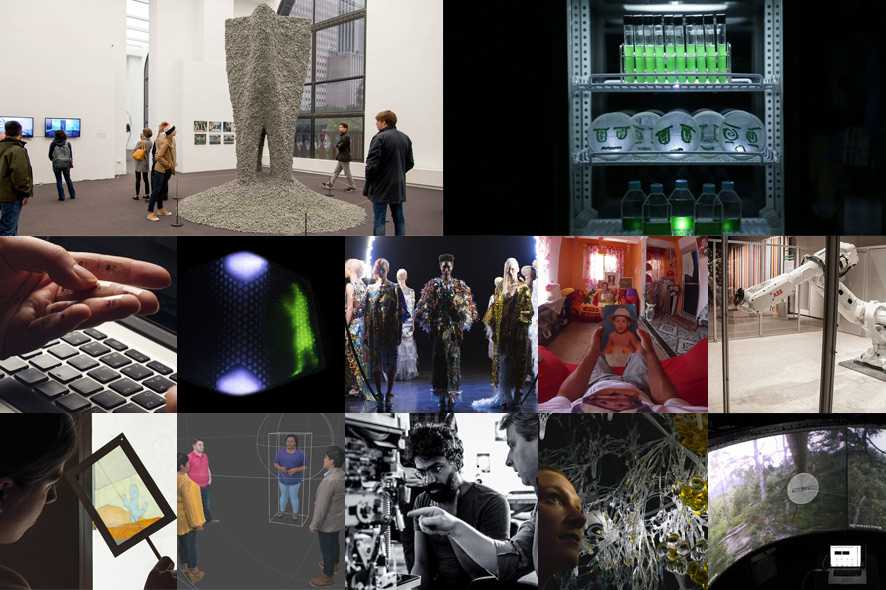
Dealing with complex issues calls for marshalling insights and skills from numerous fields, cultures and perspectives. Excellence in accomplishing this is precisely what the European Commission aims to honor with the STARTS Prize. Here, we present 2017’s best projects and what the jury’s statement has to say about them. Many will be featured in a special exhibition running at the Ars Electronica Festival in Linz.
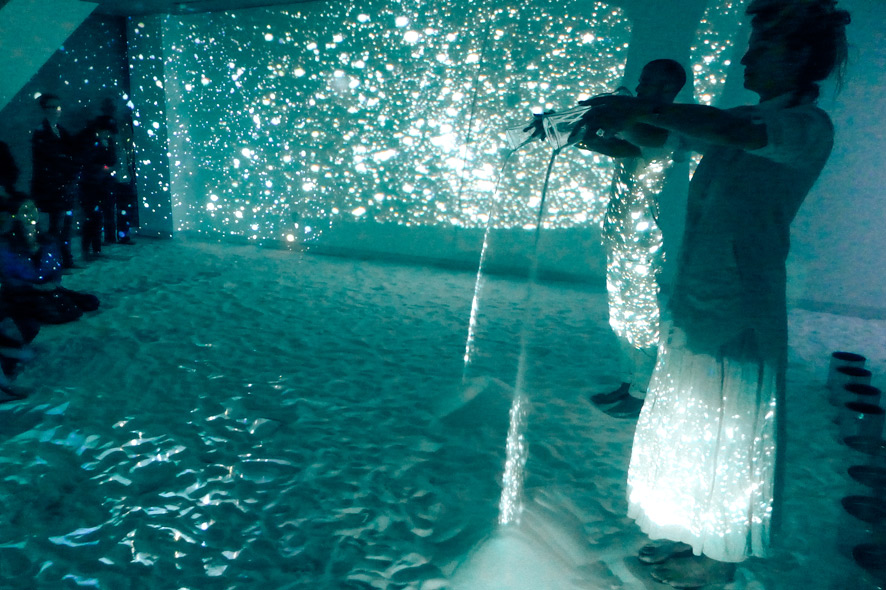
A top foreign university will once again be featured in the Campus Exhibition at the 2017 Ars Electronica Festival. This year’s special guest is UCLA–The University of California at Los Angeles. Here, Professor Victoria Vesna gives us a preview of the “Feminist Climate Change” exhibition and an account of how media art gained admission to college.
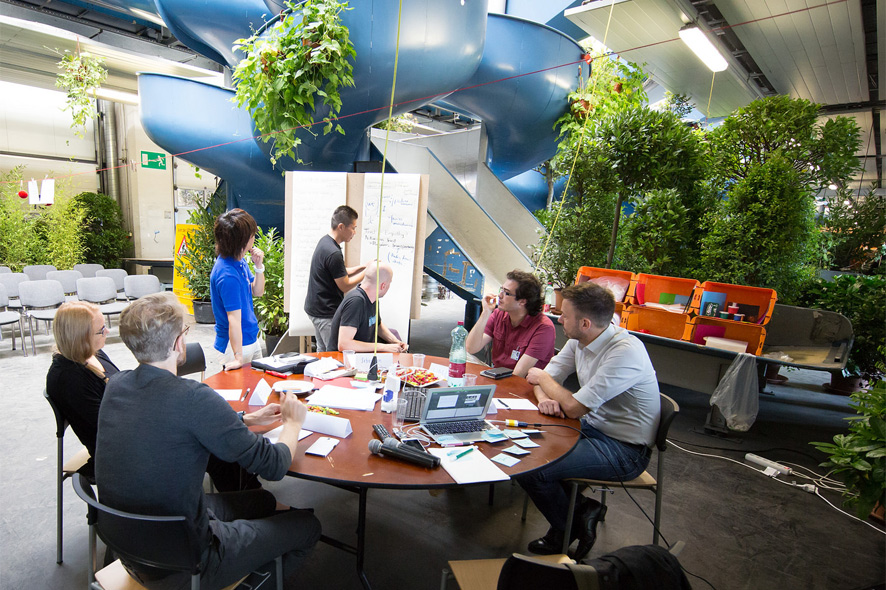
Embedded in the inspiring setting of the Ars Electronica Festival in POSTCITY Linz, the Future Innovators Summit is once again inviting motivated individuals from the worlds of art, technology and science to exchange ideas and thereby formulate questions of central importance to humankind’s future. FIS project director Hideaki Ogawa offers some conceptual points of departure for a stimulating encounter with the big issue: artificial intelligence.
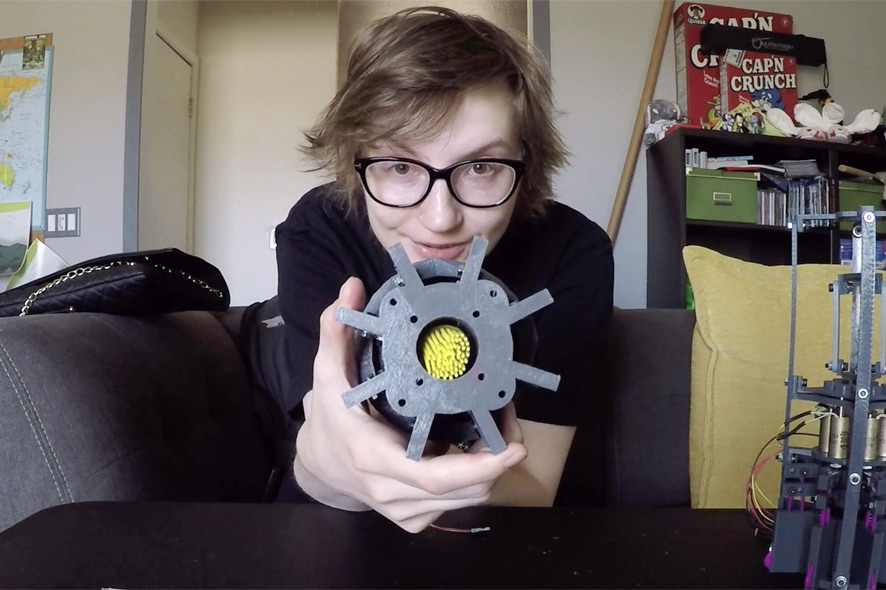
For her proposal to send a robot with artistic skills into outer space, robotics engineer Sarah Petkus was the recipient of an Honorary Mention from the 2016 art&science@ESA. In this interview, she talks about her plans for her upcoming residency at the European Space Agency (ESA) and the Ars Electronica Futurelab, about humane robots, and the essential elements that actually constitute a robot.
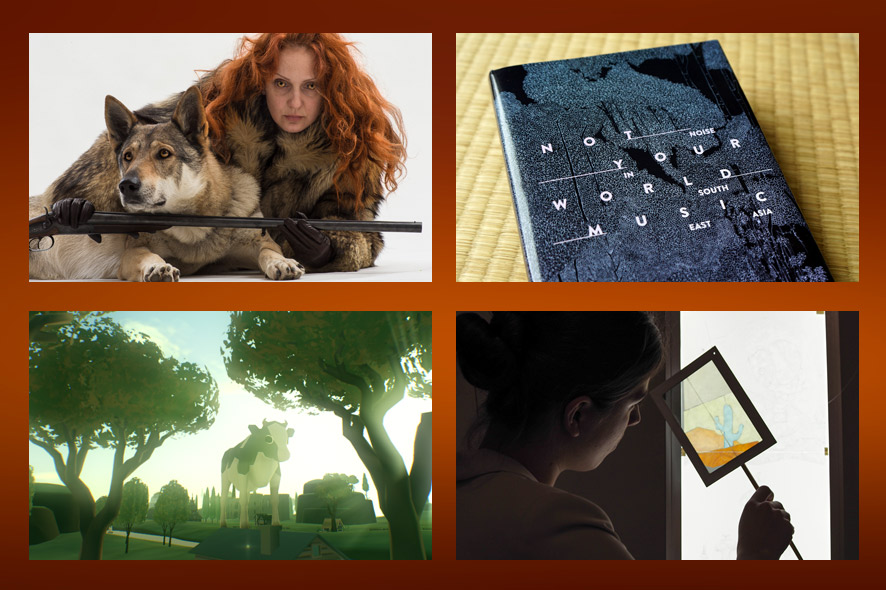
Congratulations to the winners of the 2017 Golden Nicas! 3,677 entries were submitted from 106 countries for 2017 Prix Ars Electronica prize consideration. We would like to introduce you to the award-winning works now.
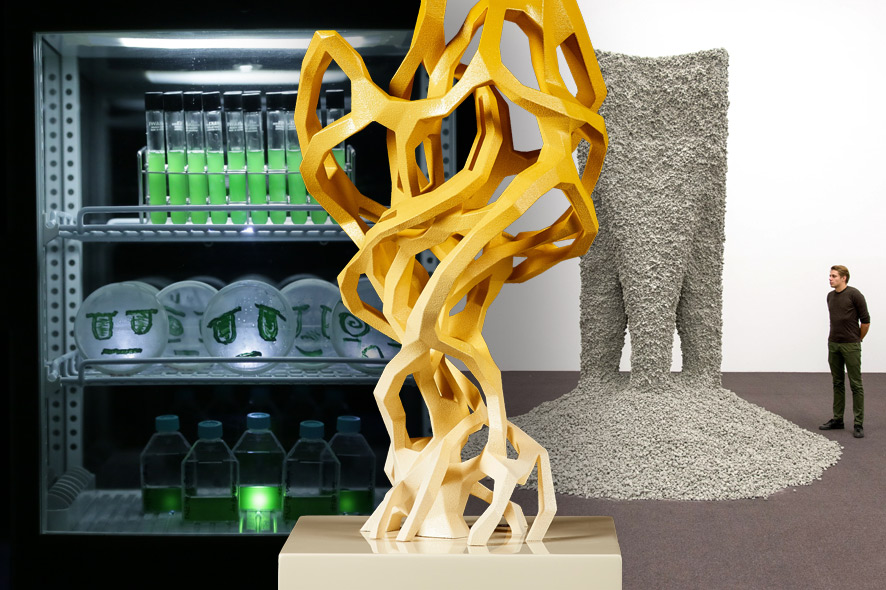
This year’s STARTS PRIZE recipients come from Japan and Switzerland. “I’m Humanity” garnered the Grand Prize for Artistic Exploration for Etsuko Yakushimaru; the Grand Prize for Innovative Collaboration goes to Gramazio Kohler Research at ETH–Swiss Federal Institute of Technology in Zurich and the Self-Assembly Lab at MIT for their “Rock Print” installation.
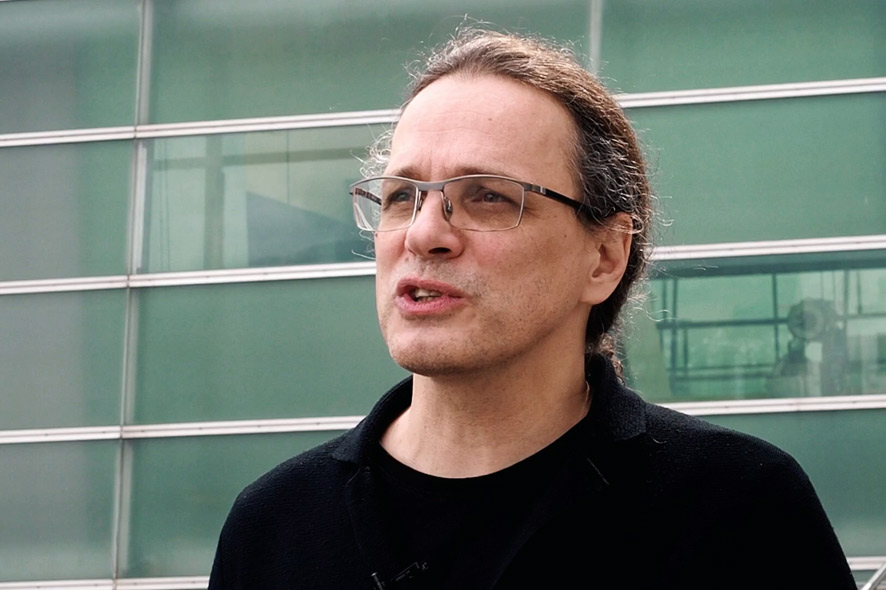
September 7-11, 2017, POSTCITY Linz will be the setting of a stimulating, comprehensive confrontation with the reality and the vision of artificial intelligence. We talked to Ars Electronica Artistic Director Gerfried Stocker about this year’s festival theme.


































